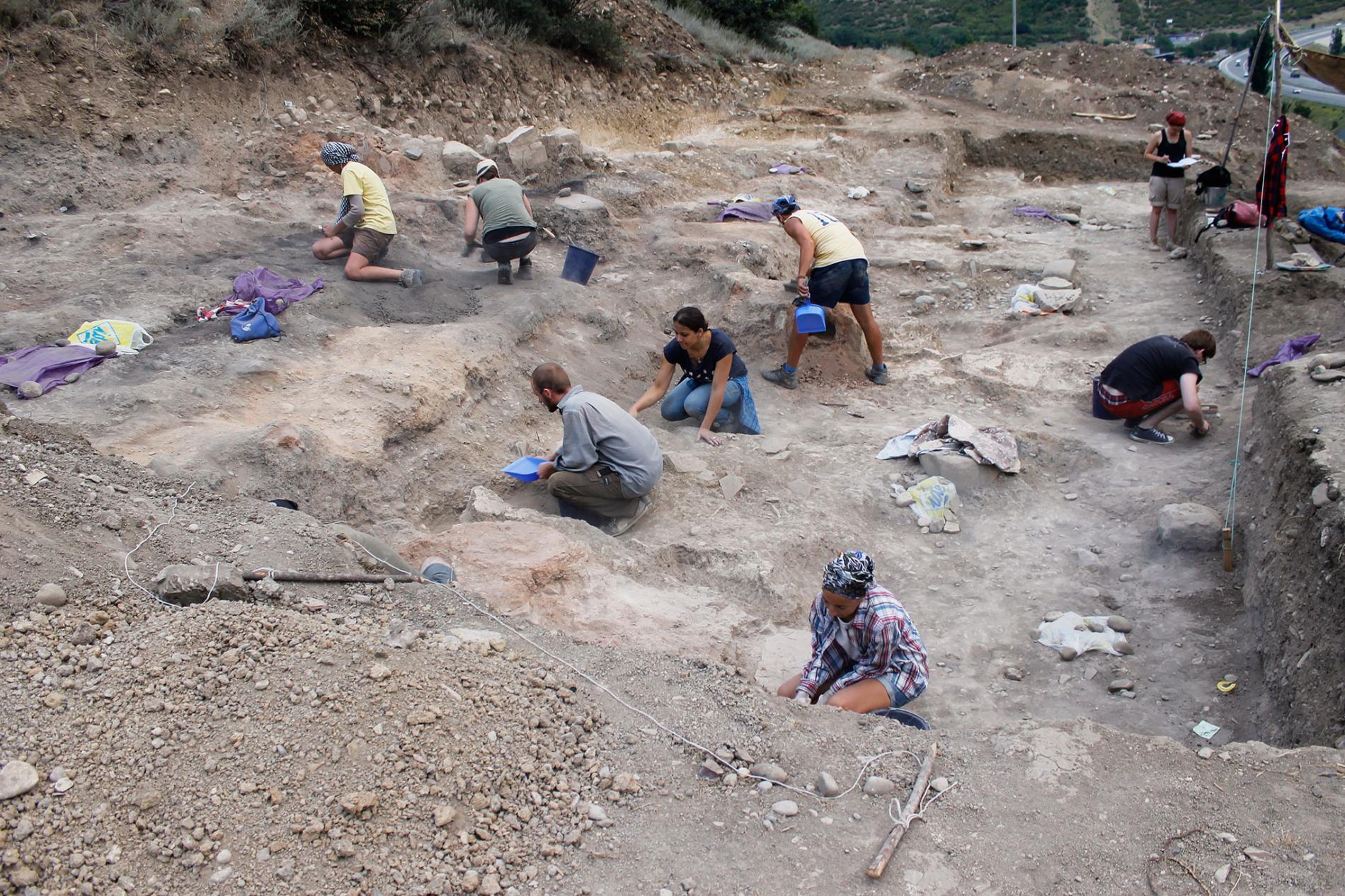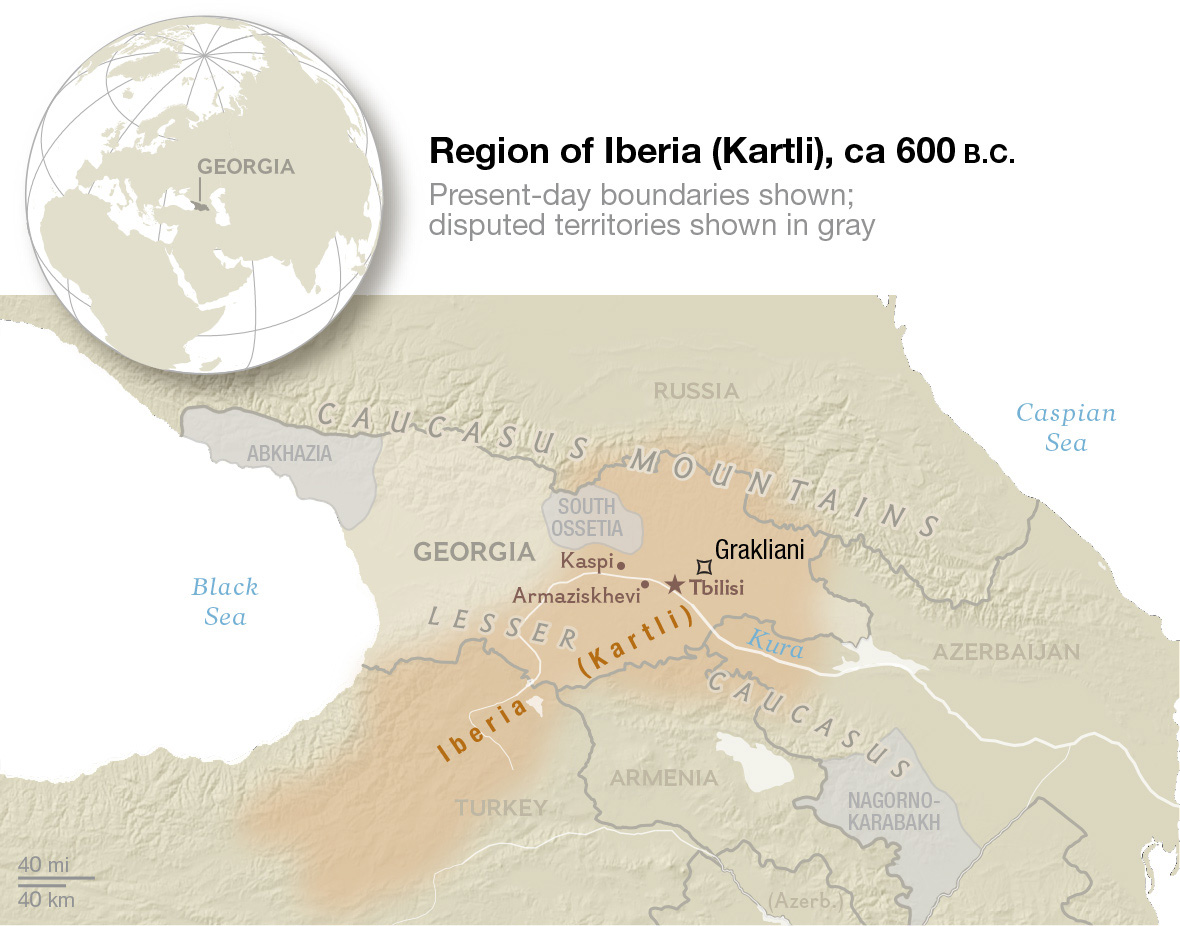At a temple site in the Republic of Georgia, letters carved in stone could change the way we see the development of writing.
Mysterious script etched on the side of a collapsed stone altar at the ancient temple site of Grakliani, in Georgia, may be the oldest example of native writing found in the Caucasus.
PHOTOGRAPH BY SHALVA LEJAVA
Culture Minister Mikheil Giorgadze and Head of the National Agency of Cultural Heritage Nikoloz Antadze have visited Grakliani Hill in Georgia.
As InterpressNews was informed by Ivane Javakhishvili Tbilisi State University, scientists believe that the new artifact just discovered at Grakliani Hill (Kaspi region) can change a certain stage of history of writing not only of Georgia, but for the entire world as well.
Archeological digs by the Tbilisi State University at Grakliani Hill have revealed a cathedral with two altars dedicated to the god of fertility, which dates back to VII century B.C. Inscriptions in an unknown language is present on both altars. The discovery proves that the mysterious script was used on Georgian territory 2700 years ago. This fact and earlier findings may change historical facts about eastern Georgia – namely, about the VII-VI centuries B.C. period in Kartli region.
“This is a unique discovery, because it proves that Georgia has a 2700-year history of writing. I am sure that this fact will cause a lot of interest not only in Georgia but throughout the whole world.
We will establish tourist infrastructure here, including a semi-open-air museum, which will allow everyone to get acquainted with these very interesting archeological digs,”- said Mikheil Giorgadze, Minister of Culture and Monument Protection of Georgia.
The head of the archaeological expedition, Professor Vakhtang Licheli, who is the Director of the Ethnographic Institute, attaches great importance to the newly discovered artifacts.
According to him, “The inscription, which was discovered by the Tbilisi State university’s expedition in Grakliani Hill, is of special importance and unique.
“Most importantly, it dates back to the seventh century B.C. meaning that Georgia has a 2700-year history of written language. This discovery makes Georgia part of the elite civilizations, which have had their own written language for thousands of years. This inscription was found in a temple, which is quite well preserved,”- said Licheli.
According to him, the inscription is so important that it goes beyond the frames of Georgian scientific research and will become a subject of international research. The new discovery will change one period of the world’s history of written language.
“The archeological excavations in Grakliani Hill proved a 300 000-year continuous cycle of development from the Stone Age to the ancient period. The artifacts excavated from 10 different layers – primitive tools, cult objects of a later period and a pharmaceutical device – called spatula, used for mixing drugs, – carry important information. Archaeologists got an interesting architectural picture: a district of buildings characteristic of that period; the seals that dates back to V-Vl centuries B.C, similar to which were discovered in the Mesopotamian city of Uruk;, a golden disc of V-Vl centuries B.C, the only counterpart of which exists in Souza (Iran); several cult rooms, including a cult mill, are also very important and interesting,”- said the professor.









Комментариев нет:
Отправить комментарий